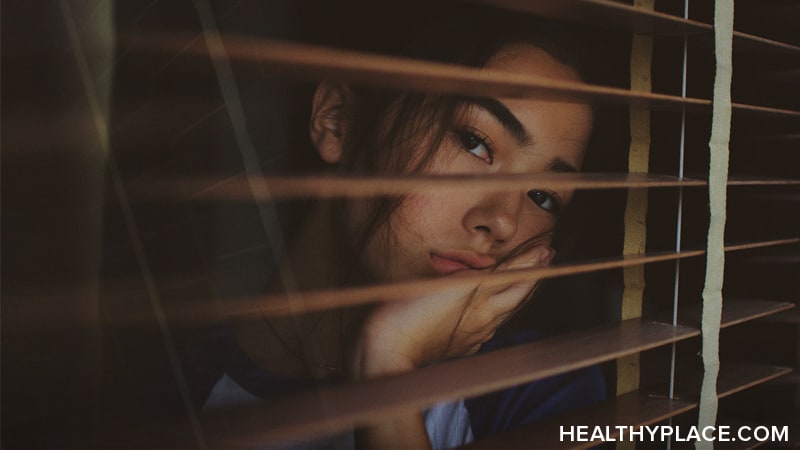Cultivating Emotional Resilience When Relationships End

Emotional resilience when a relationship ends is important if challenging. As someone with borderline personality disorder (BPD), the ending of relationships feels no short of an existential nightmare. The grief isn't just about losing someone; it's about losing the version of me that I molded to fit within that love story. Post-breakup, I feel like I'm looking at my reflection in a funhouse mirror. What stares back is distorted, confusing, and sometimes downright unrecognizable.
Emotional Resilience When a Relationship Ends Comes in Many Forms
I've got this uncanny ability to forget anything positive associated with the relationship that's ended. Selective memory is not something I have to work for; it happens on autopilot. I've figured out it's my BPD's way of shielding me from the impending doom of sadness and perceived abandonment. I must have picked up this trick back in the day, trying to survive the emotional wilderness of my distant caregivers. Sometimes, I think of this whole selective amnesia thing as my secret superhero power, protecting me from the nasty stings of heartache, or so I tell myself.
In the grand scheme of things, I'm not fooling myself. My evasion tactics stack up some heavy emotional baggage. I'm clutching the anger because somehow I've convinced myself that this beats the alternative of just letting sadness and loss crash into me. My biggest lesson in this was a best friend passing away while I was still wearing my anger armor. The rage within me was fierce and all-consuming. However, a tidal wave of nostalgia for the good times hit me when the grief trailed a year behind her passing. It reminded me that this was no way to honor those I cherished — even if things ended on a sour note. This is not really the emotional resilience at the end of a relationship that I want.
Healthy Emotional Resilience When a Relationship Ends
So, these days, I'm on a mission, like some sort of emotions detective. I'm training my radar to catch the moments when I slam the door on memories and connections. A huge tell that I'm giving into evasion tactics is that I experience an extreme shift in perception. This looks like intrusive negative thoughts about the person throughout the day.
The best way I know how to slow all of this down is to name the primary emotion (usually fear or sadness) beneath the secondary emotion (usually anger) so that I can begin to process what's really bothering me. By recognizing and addressing the secondary emotions that may be masking or amplifying their primary emotions, I can better understand my emotional reactions and work towards healthier emotional regulation and coping strategies.
This distinction is a fundamental part of the dialectical behavior therapy (DBT) approach to improving emotional wellbeing and interpersonal relationships. My anger might rear its head; it's tough to wrangle at times, but I'm onto it. I'm reminded that beneath the messy emotions and defense mechanisms, there it is — the glint of choice among the disorder. I can be emotionally resilient when a relationship ends.
APA Reference
Mae, K.
(2023, September 5). Cultivating Emotional Resilience When Relationships End, HealthyPlace. Retrieved
on 2026, March 1 from https://www.healthyplace.com/blogs/borderline/2023/9/cultivating-emotional-resilience-when-relationships-end
